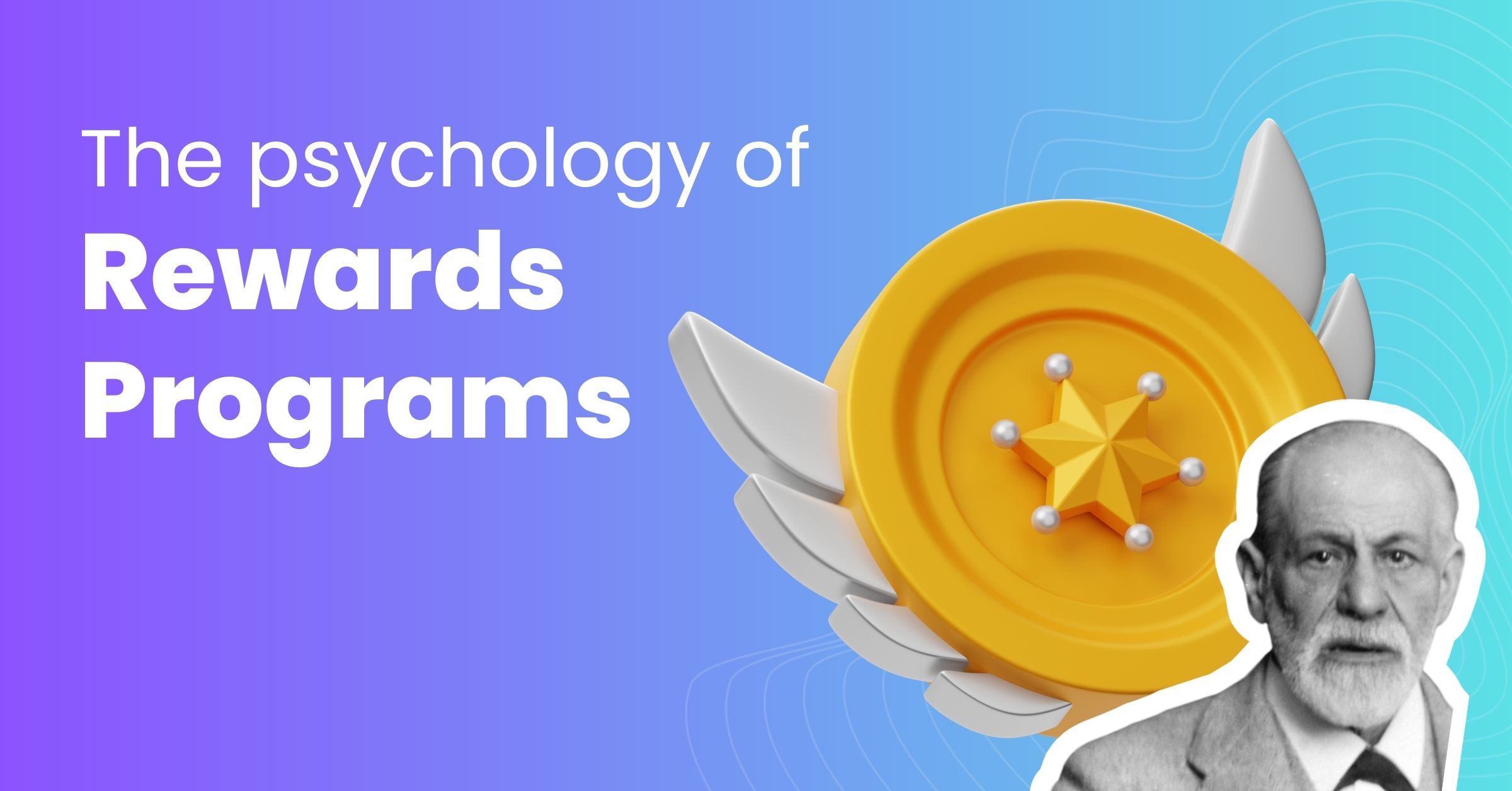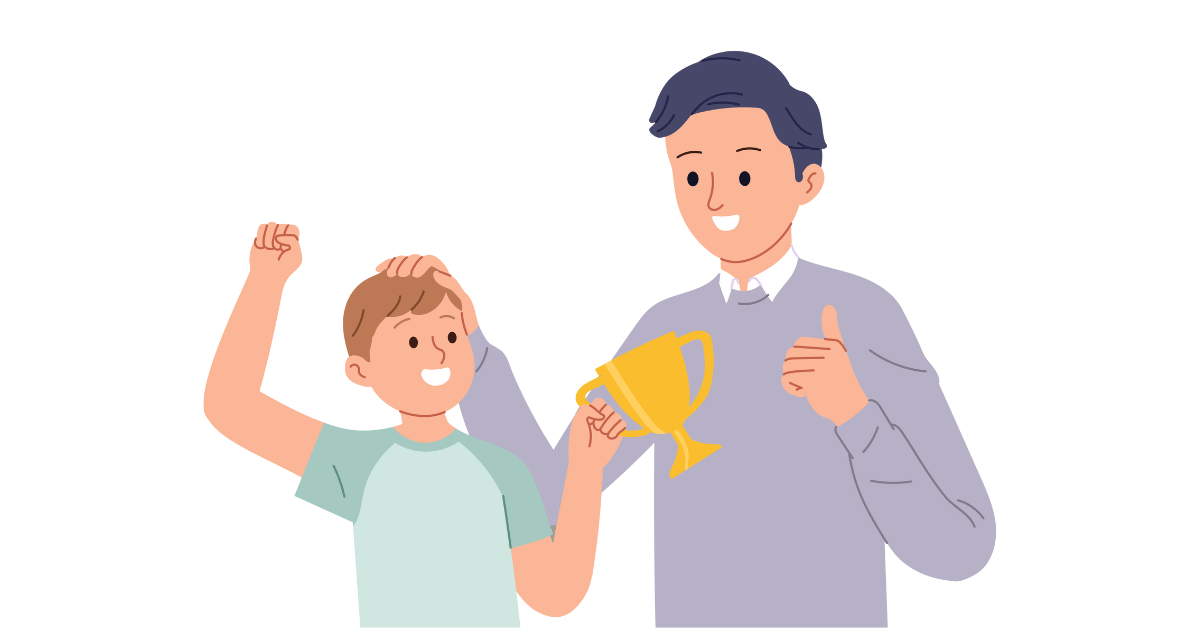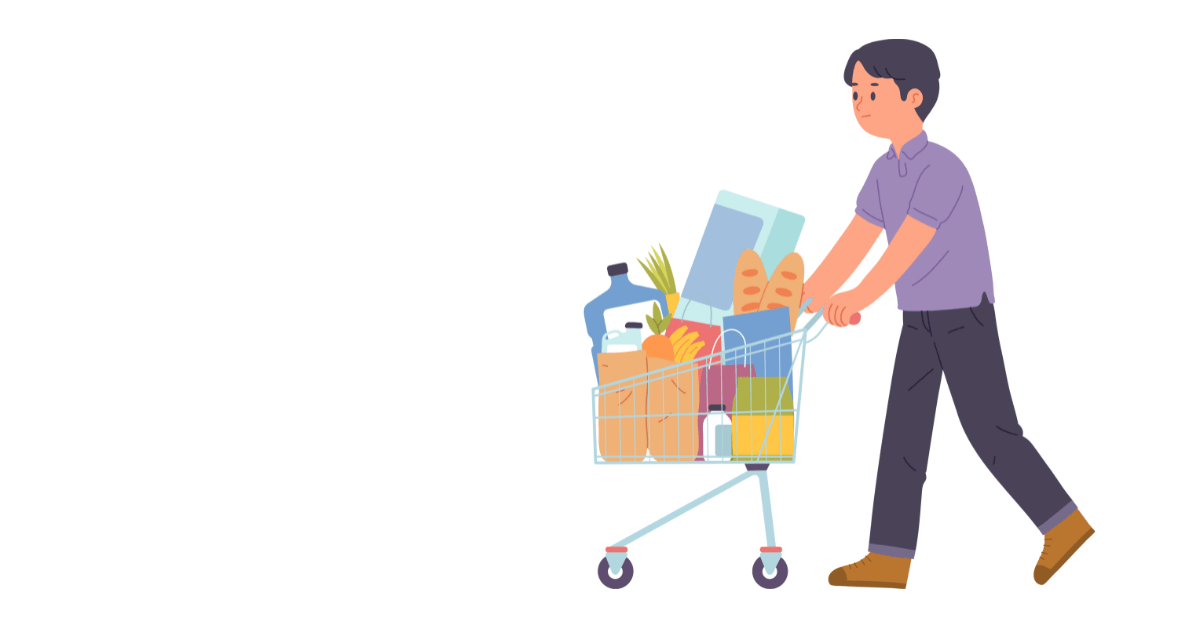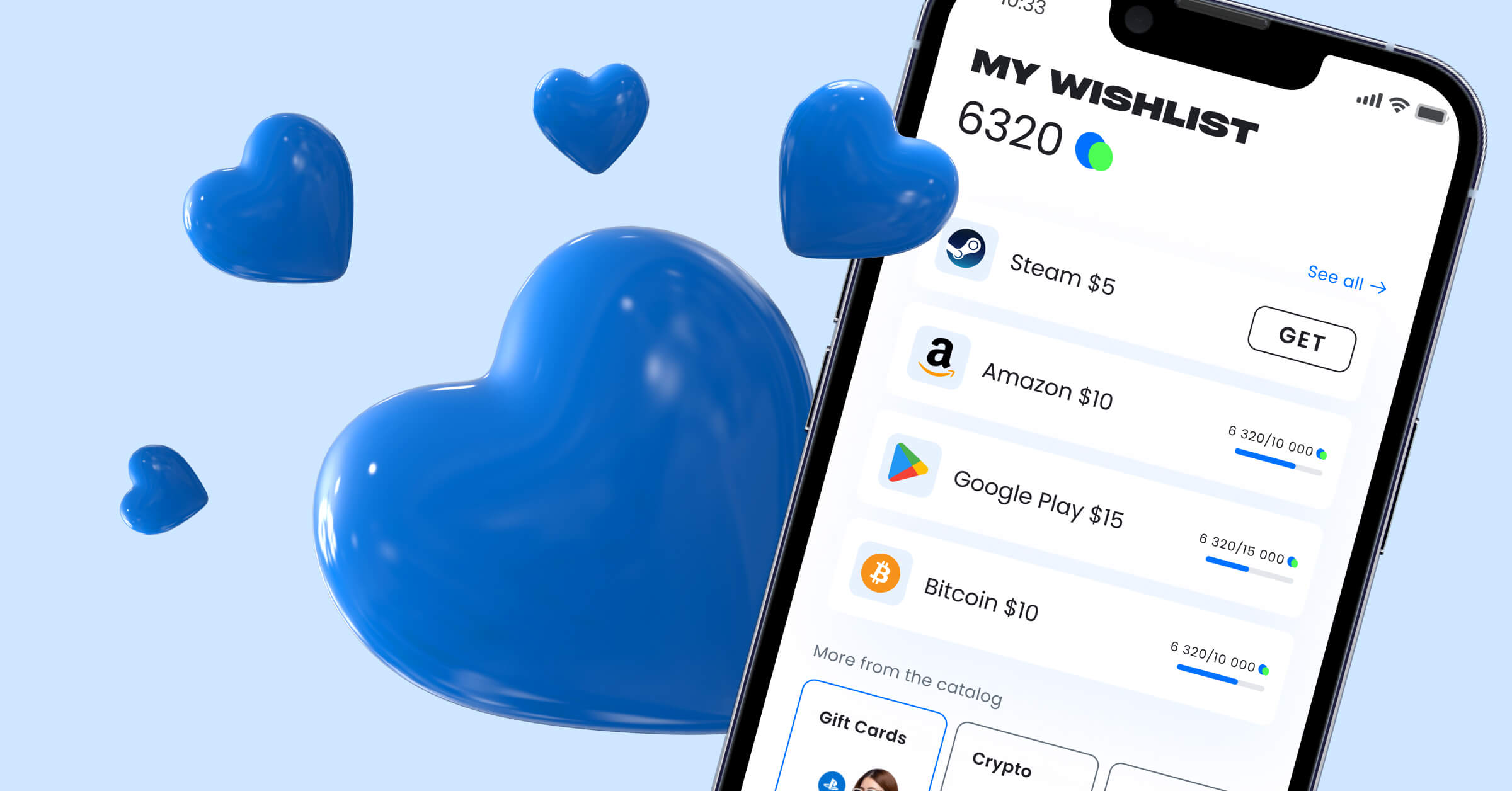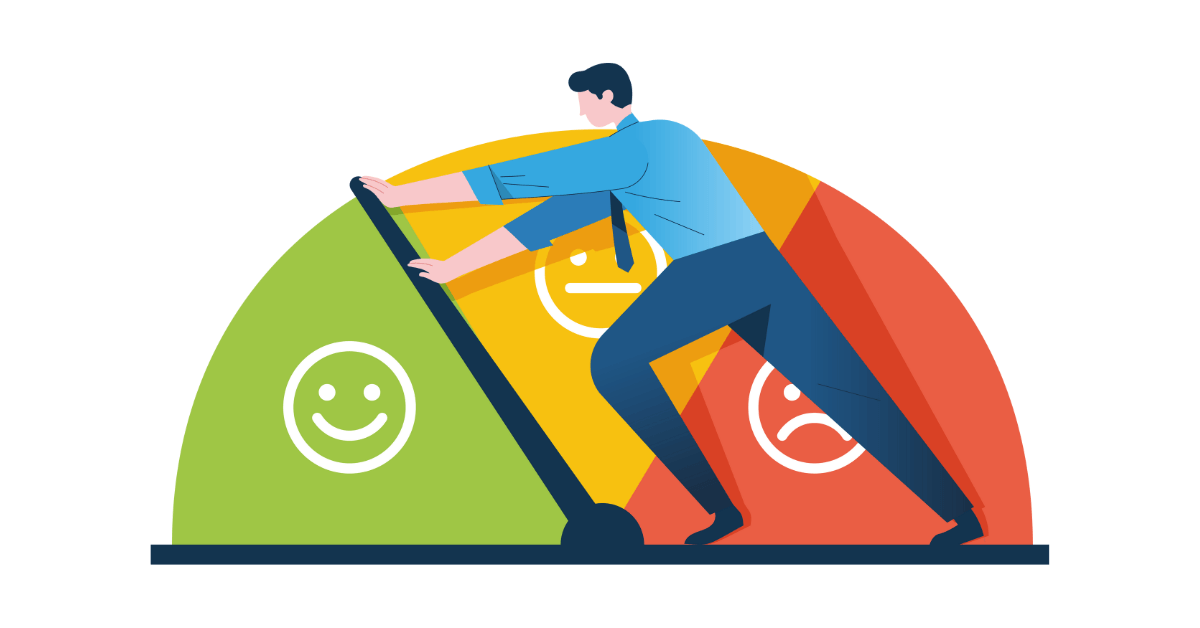The basic psychology of rewards
How do you get your dog to sit when you’re waiting at a busy crosswalk? Or not to jump up on every visitor who walks through the door? Or to wait in one place until you call their name or give them a signal?
As you already know, the answer is by rewarding them for the behavior you want to encourage and promote.
Sure, you can train a dog without giving it tasty rewards or treats, but it’s much easier, and much faster when using rewards as an incentive.
Psychologists call this, positive reinforcement and the power of habit.
But do rewards also promote loyalty in humans, and if so, why?
What is positive reinforcement?
Positive reinforcement is about offering rewards or positive outcomes to strengthen a particular behavior. When a behavior leads to a pleasant result, people are more likely to repeat the process.
Rewards can come in the form of praise, recognition, tangible rewards, privileges, or any other positive stimulus that reinforces the desired behavior.
Positive reinforcement encourages people to continue engaging in that behavior by connecting it with positive outcomes – the dream result for all marketeers and retail store owners.
What is the power of habit?
The power of habit refers to the influential role that habits play in shaping our actions and behaviors.
Habits are automatic routines or behaviors that we perform without conscious thought. They are often formed through repetition and become ingrained in our daily lives.
Habits significantly impact our behavior because they reduce the cognitive effort required to make decisions. Instead of consciously analyzing every situation, habits allow us to rely on automatic responses based on previous experiences.
This makes habits powerful in influencing our actions – especially in business – even in the absence of conscious intent.
The power of habit is closely related to the concept of cues, routines, and rewards, as described by Charles Duhigg in his book The Power of Habit. According to Duhigg, habits follow a loop: a cue triggers a routine, which leads to a reward. Over time, this loop becomes ingrained and forms a habit.
Understanding this loop can help individuals identify cues, modify routines, and create new habits by designing rewards that reinforce desired behaviors.
Many e-commerce retailers and services employ online shopping rewards programs to promote positive reinforcement and the power of habit. One such online program is Monetha which lets online shoppers earn reward points for shopping with a growing range of over 2,000 top retailers.
The accrued points can then be redeemed for gift cards from top stores like Amazon, Apple, Uber, Nintendo, Spotify, Virgin Experience Days, GameStop, and many others. Points may also be exchanged to invest in a range of cryptocurrencies, and even used to donate to a charity of your choice.
The power of rewards and incentives
Incentives are rewards or benefits that motivate and influence our choices. They shape our behavior by associating positive outcomes with specific options. Our brains naturally seek pleasure and avoid pain, so when we expect positive results, we feel motivated to choose that option.
Incentives can be tangible (money, gifts, discounts) or intangible (praise, recognition, accomplishment). They influence decision-making by weighing the potential benefits against the costs or effort involved. Consumers are more likely to choose the incentivized option when the benefits outweigh the costs.
The impact of incentives varies among individuals based on their motivations and values. Monetary rewards may drive some, while personal fulfillment motivates others.
According to a report by the American Marketing Association, loyalty transcends products and services. It creates an emotional connection between customers and the brand — one in which customers feel seen and heard.
What is a rewards program?
To explain the principles and the benefits of rewards programs, let’s use the Monetha online shopping rewards program as an example.
Through Monetha’s rewards program, users can earn cashback on their purchases. When users make purchases using their Monetha account at eligible merchants, a portion of the purchase amount is given back to them in the form of gift cards or as cryptocurrencies.
Like many other rewards programs, Monetha members may also earn rewards points through a series of mini-tasks like taking surveys and questionnaires. Other rewards programs reward their users for reviewing products, downloading apps, watching videos, scanning their shopping receipts, and much more.
To access their rewards, Monetha users usually follow a straightforward process. When users accumulate a certain number of points, they can be exchanged for gift cards from thousands of top stores, invest in cryptocurrencies, or even donate their rewards to a charity of their choice.
This allows users to enjoy the benefits of the rewards they’ve earned through their engagement with Monetha.
The process is simple and easy to get started.
- Download an app or sign up for the program online
- Shop with the company’s online retailer partners, or complete a series of mini tasks like surveys, and questionnaires
- Earn points for every task or purchase, and even earn additional points just for signing up
- Exchange your earned points for rewards like gift cards, PayPal cash, coupons, discounts, or invest in cryptocurrencies, or donate your points to charity
How rewards programs create a sense of achievement
The psychological aspect of achievement is all about feeling good when you accomplish something. In the case of rewards programs, the sense of accomplishment comes from the act of saving money and earning rewards where countless orders can’t.
It’s that sense of fulfillment and satisfaction you get when you reach your goals. In terms of shopping, it means that when you set expectations for a product or service and those expectations are met or even exceeded, it feels like a win.
You feel like you made a smart choice and got what you wanted.
This feeling of achievement drives consumer satisfaction and can make you a loyal customer because you want to keep experiencing that positive feeling.
Accomplishment and fulfillment
In short, a rewards system is designed to foster a sense of accomplishment and fulfillment by allowing you to earn rewards for your engagement and purchases.
When you accumulate rewards through your interactions with the rewards program, it feels like you’ve achieved something and made progress.
It’s a rewarding experience that adds a positive touch to your overall satisfaction with the platform and conveys a sense of achievement to the user for making a smart decision.
Building trust and loyalty with rewards programs
Retail rewards programs foster trust and loyalty among consumers in a few simple ways.
When a person participates in a rewards program, it creates a sense of value and appreciation for their loyalty as a customer. They feel understood, recognized, and rewarded for choosing to shop with a particular retailer.
Reward programs can also help establish a sense of trust by consistently delivering on their promises. When a person earns rewards and receives benefits as advertised, it builds confidence in the retailer’s commitment to its customers.
It also demonstrates that they value the consumer’s business and are willing to go the extra mile to keep them satisfied.
Additionally, rewards programs create a positive cycle of engagement.
As the customer earns rewards and enjoys the benefits, it encourages them to continue shopping with that retailer. The customer feels a sense of loyalty because they know that by sticking with them, they will continue to receive perks and enjoy a more personalized shopping experience.
The more the customer engages with the rewards program and the retailer, the more they get to understand their preferences and shopping habits. This enables the retailer to provide even more tailored offers and recommendations, further enhancing the level of trust and loyalty.
How to increase customer retention
Positive experiences including well-run rewards programs greatly impact customer retention. Customers feel valued and appreciated When they have positive experiences and receive rewards.
This creates loyalty and makes them more likely to stay with the company and recommend it to others.
By consistently delivering positive experiences and meaningful rewards, companies can build long-lasting relationships with their customers and encourage greater retention.
Retention is not the only bonus of reward programs, there are other bonuses like:
- Increased customer loyalty
- Increased purchase frequency
- Increased basket size
- Increased profitability
- Increased brand advocacy
- Reduced customer acquisition costs
The role of personalization in rewards programs
Personalization in rewards programs is hugely important as it recognizes and acknowledges the individual preferences and needs of each customer.
When rewards are tailored to match their specific interests, it creates a more meaningful and engaging experience.
This highly personalized approach makes customers feel valued, understood, and appreciated by the company.
With personalized programs, customers are more likely to actively participate, engage, and continue using the program.
They feel motivated to earn and redeem rewards that are relevant to their preferences. This drives customer loyalty and encourages repeat purchases.
As a bonus for the company operating the rewards program, personalization helps companies gather more valuable data and insights about their customer’s habits, preferences, shopping patterns, average spending, and other vital statistics.
By understanding the customer’s individual preferences and behaviors, companies can make informed decisions and provide better recommendations or offers.
This in turn, enhances the overall customer experience, increases satisfaction, and fosters a stronger connection between the customer and the brand.
How rewards can be tailored based on individual preferences
Once again using the Monetha case study, you’ll see that the company tailors rewards and offers based on individual preferences through their personalized approach.
The company collects and analyzes data on customer behavior, preferences, and purchase history and uses it to understand each customer’s unique interests and needs.
By leveraging this data, Monetha can create targeted offers and rewards that align with each customer’s specific wants. For example, if a customer frequently purchases electronics, Monetha may offer them exclusive discounts or rewards related to electronics.
The rewards program also allows customers to customize their preferences and interests within their account settings. This enables the platform to further personalize the rewards and offers presented to customers.
By tailoring the incentives to match individual preferences, Monetha increases the likelihood of customer engagement, satisfaction, and long-term loyalty.
The 7 physical and psychological benefits of rewards programs
Rewards programs provide significant psychological benefits to customers, primarily by fostering a sense of loyalty and connection with the brand.
The exclusive perks and incentives offered through these programs make customers feel valued and appreciated, triggering positive emotions and a sense of belonging.
This emotional attachment strengthens the bond between the customer and the brand, leading to increased customer retention rates.
Rewards programs also tap into the psychological principle of reciprocity, where customers feel compelled to reciprocate the benefits received by continuing to engage with the brand and make repeat purchases.
Along with the psychological benefits of rewards benefits, there are also 7 measurable benefits.
- Repeat purchases – Rewards programs provide incentives for customers to make repeat performances.
- Increased spending – Programs subtly encourage customers to spend more than they originally intended.
- Customer engagement – Companies that engage loyalty programs provide a platform to engage closely – newsletters, personalized offers, and promotions – with customers on an ongoing basis.
- Brand advocacy – Customers who benefit from rewards programs are more likely to become brand advocates.
- Data collection and customer insights – Valuable customer data, used to improve products, services, personalized product offers, customer satisfaction, etc. – can be gathered easily with a rewards program.
- Competitive advantage – A rewards program can set a company apart from its competitors and attract customers who value additional perks and rewards.
- Customer retention – By constantly rewarding customers for their loyalty, businesses can create a sense of attachment and community, making it less likely that customers will switch to competing brands.
Loyalty programs that monitor how consumers think and behave can bring positive outcomes for both businesses and customers. When businesses design loyalty programs that align with the psychological needs and preferences of their customers, it creates a win-win situation.
Customers feel valued and rewarded for their loyalty, which increases their engagement and emotional connection with the brand. In return, businesses benefit from this deeper engagement by building long-term loyalty, encouraging repeat purchases, and attracting new customers through positive word-of-mouth.
By tapping into consumer psychology, loyalty programs can create a positive cycle where businesses thrive, and customers feel appreciated and motivated to continue their relationship with the brand.
